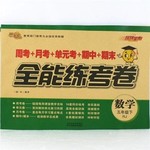题目内容
My grandmother looks forward to _________my aunt in Hong Kong.
A. hanging out B. taking a trip C. hearing from D. turning down
C
【解析】
试题分析:句意:我奶奶盼望收到身在香港的姑姑的来信。Look forward to doing意为“期待做某事”;hang out意为“闲逛”,take a trip意为“旅行”,hear from意为“收到某人的来信”;turn down意为“将音量调小,拒绝”;故选C。
考点:考查动词短语的词义辨析。

练习册系列答案
 全能练考卷系列答案
全能练考卷系列答案 一课一练课时达标系列答案
一课一练课时达标系列答案
相关题目